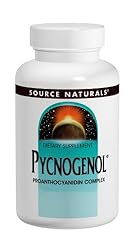One of my aunts recently told me that she had complications with her pregnancy (in her early 30's), due to endometriosis. And I found out another one of my aunts (her sister) was never able to get pregnant because she had it also (this was in the days before they knew what to do about it). In addition to that, my mother was told that she had better have children early, because she got cysts and heavy periods, and this could make it harder for her to have children if she waited until her 30's.
Being in my 40's, this isn't sounding really good for me! I also seem to have some major "risk factors," according to this site (greeeat). See highlighted parts below.
Who is at risk of endometriosis?
It is estimated that endometriosis affects over one million women in the United States, and most cases are diagnosed in women between 25 and 35 years of age. However, because many women have no symptoms, the exact prevalence is unknown. The condition is very rare in postmenopausal women. Other risk factors for endometriosis include being white (compared to African American and Asian), being tall and thin with a low body mass index, being infertile, and delaying pregnancy until older ages.But luckily, we have the internet and tons of resources and information to help us now.
I've never been officially diagnosed with Endometriosis (I'm not keen on the idea of having a lacroscopic surgery to find out for sure) but even before I knew all of this about my aunts and mother, I suspected I might have it. I do tend to get bad menstrual pain, sometimes pain with sex, and sometimes pain with orgasms.
Years ago I had heard about how good Pycnogenol (pine bark extract) is for the skin. An aesthetician who was doing microdermabrasion on me had flawless, really young looking skin and she swore the Pycnogenol she was taking had a lot to do with it.
Well, yesterday I was at the library, reading a book called "Perfect Hormone Balance for Fertility" (you can read about it here). And it said a certain type of pine tree is known to have bark that contains a potent antioxidant / anti-inflammatory called polyphenols. I am for the most part quoting what was said in the book:
In 2007, a large study randomly assigned women with endometriosis to take either a 30 mg. capsule twice a day of a pine bark extract, or to take Lupron. In just 4 weeks all women experienced a reduction in their symptoms. Women using the herbal extract reported that pain was reduced BY ABOUT 80 PERCENT and cramping ABOUT 75 PERCENT, which were about the same as those on Lupron. But the women on the extract continued to have regular menstrual cycles, whereas those on Lupron didn't, and those on the extract didn't experience the menopausan side effects of Lupron. What's more, at least FIVE WOMEN ON THE PINE BARK (Pycnogenol) EXTRACT BECAME PREGNANT. Women on Lupron had a rebound return of symptoms when they went off the drug, whereas pine bark had no such side effect.




You can read more about the benefits of pycnogenol (for endometriosis) here (or just google "endometriosis" and "pycnogenol"... you will find a TON of stuff!!!). http://www.pycnogenol.com/media/media_press_releases.php?action=detail&id=479
On another note, I also recently discovered that Progesterone cream can greatly help reduce endometriosis! Since it took me 5 years to learn this one, I really want to share it with others. You can read more about it on this page.
Good luck!
EB
Good luck!
EB
